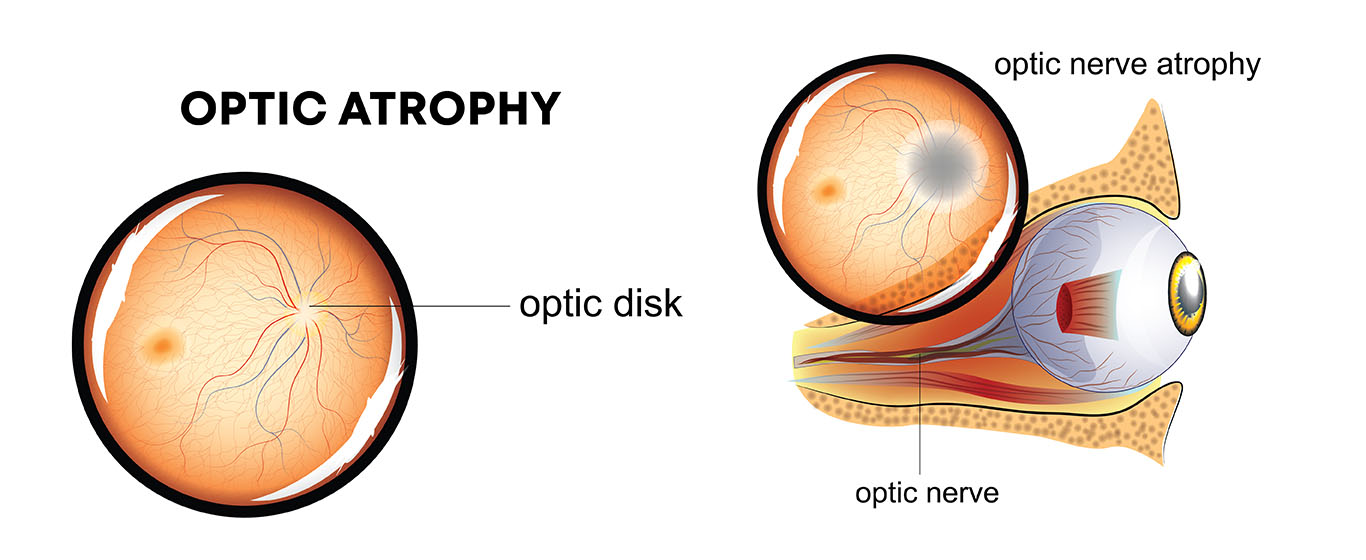
Optic atrophy is characterized by the progressive degeneration of the optic nerve, leading to vision loss. It can be distressing for individuals affected by it, as it significantly impacts their quality of life. While modern medicine offers various treatment options, Ayurveda, the ancient Indian system of medicine, provides a holistic approach to managing optic atrophy.
According to Ayurveda, optic atrophy can be attributed to an imbalance in the doshas (energetic principles) – particularly Vata and Pitta doshas. Vata governs the nervous system, while Pitta is responsible for eye health. Imbalances in these doshas can lead to optic nerve damage and subsequent vision problems.
Diagnosis of Optic Atrophy
In Ayurveda, a comprehensive approach is followed to diagnose optic atrophy. The Ayurvedic practitioner examines the patient’s medical history, performs a physical examination, and assesses the doshic imbalances. Pulse diagnosis (Nadi Pariksha) and examination of the eyes (Netra Pariksha) are essential to determine the underlying cause and severity of optic atrophy.
Management of Optic Atrophy in Ayurveda
Re-establishing Dosha Balance: The primary focus of Ayurvedic treatment is to harmonize and restore equilibrium to the doshas. Specific herbal formulations and dietary recommendations are prescribed to pacify Vata and Pitta doshas. This helps in reducing inflammation and promoting the regeneration of the optic nerve.
Panchakarma Therapy: Panchakarma, the Ayurvedic detoxification procedure, plays a crucial role in managing optic atrophy. Therapies like Nasya (nasal administration of medicated oils),
Shirodhara (continuous pouring of herbal oils on the forehead), and Tarpana (eye nourishing treatments) are beneficial in improving vision and overall eye health.
Herbal Remedies: Ayurveda employs many herbs known for their rejuvenating and therapeutic properties. Herbs like Triphala (a combination of three fruits), Saffron, Bilberry, Brahmi, and Ashwagandha are commonly used to improve vision, reduce inflammation, and protect the optic nerves.
Ayurvedic Diet and Lifestyle: A balanced and nourishing diet is essential for optic nerve health. Ayurvedic recommendations include consuming fresh fruits, vegetables, whole grains and incorporating ghee (clarified butter) into the diet. Additionally, avoiding excessive screen time, practising eye exercises, and maintaining a regular sleep cycle are advised to prevent further damage to the optic nerves.
Stress Management and Meditation: Chronic stress can worsen the condition of optic atrophy. Ayurveda emphasizes the importance of stress management through techniques like meditation, Pranayama (breathing exercises), and yoga asanas. These practices promote relaxation, improve blood circulation, and support overall eye health.
Regular Follow-ups: Optic atrophy requires long-term management and monitoring. Regular follow-up visits with an Ayurvedic practitioner are crucial to evaluate the progress, adjust treatment plans, and make necessary lifestyle modifications.
Conclusion
Optic atrophy is a complex condition that requires a holistic approach for effective management. Ayurveda offers a comprehensive framework to diagnose and treat optic atrophy by addressing the underlying doshic imbalances and promoting overall eye health. However, consulting a qualified Ayurvedic practitioner for personalized treatment plans based on your specific condition is necessary. You can also contact Dr Basu Eye Hospital for effective and ensured optic atrophy treatment. Ayurvedic eye treatment from Dr Basu Eye Hospital can assist in potentially improving vision and slowing down the progression of optic atrophy while enhancing overall well-being.